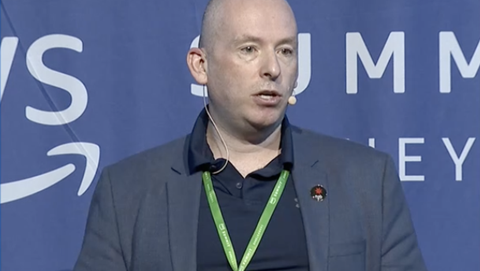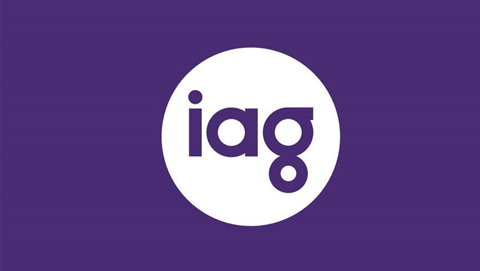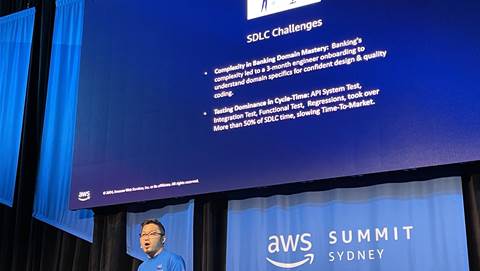Google and Facebook are facing a raft of tough new anti-monopoly laws that heavily constrain the way they collect data on users and ban the default setting of browsers like Chrome on new devices under a suite of recommendations released by Australian Competition and Consumer Commission (ACCC).

The ACCC on Monday released the much anticipated preliminary report of the Digital Platforms Inquiry into Google, Facebook and Australian media. The report comes ahead of the ACCC's final report due in June 2019.
It contains a suite of proposed measures that, in essence, amount to a crackdown on the market dominance of platforms and the way those businesses are integrated.
While the inquiry is largely couched around the effects of the digital advertising and media industries, it carries major ramifications across the tech sector because of the increasing dominance of online commerce models that now stretch across most of the economy ranging from banking and retail to travel and professional services.
Mobile in the crosshairs
Among the boldest proposals from the ACCC is a bid to decouple Google’s dominance of the mobile operating system, browser and search functionality from hardware by banning the default selection of its products on new devices when they are shipped.
“The ACCC is considering recommending that:
(a) suppliers of operating systems for mobile devices, computers and tablets be required to provide consumers with options for internet browsers (rather than providing a default browser), and
(b) suppliers of internet browsers be required to provide consumers with options for search engines (rather than providing a default search engine).
"The ACCC considers that where options for internet browsers and search engines are presented, no option should be pre-selected,” the regulator said in its report.
The move is reminiscent of previous anti-trust actions in the US against Microsoft that sought to decouple its Internet Explorer browser as the default shipped and automatically loaded with machines running the Windows operating system.
Although US regulators ultimately won that battle, it took so long to grind through the courts that the desired effects were partly inert on delivery because of the rapid rise of mobile computing that Microsoft largely missed the boat on, handing an accidental effective duopoly to Google and Apple.
New battle, old fight
After years of sabre rattling, the ACCC is out to fight the good fight with Google and Facebook copping a thumbs down in terms of their perceived competitive behaviour.
“The value of digital platforms to users and the lack of close alternatives has afforded both Google and Facebook substantial market power," the ACCC said.
"The ACCC considers that Google has substantial market power in supplying general search services (with a current market share of approximately 95 percent) and appears likely to retain its dominant share at least in the short to medium term.
“This substantial market power has been extended to the supply of online search advertising and the supply of news referral services to news media businesses.
"The ACCC also considers that Facebook has substantial market power in supplying social media services in Australia via its Facebook and Instagram platforms.
"In addition, the ACCC considers that Facebook also has substantial market power in display advertising and the supply of news referral services to news media businesses.”
Tough new data controls
Very notably, the controls and concentration of user and market data is in the regulatory mix, especially when it is collected and accessed via boilerplate tick-or-flick user agreements that are required to obtain services.
Under recommended merger laws, factors like the removal of competitors are bolstered by a further consideration around “the amount and nature of data which the acquirer would likely have access to as a result of the acquisition”.
That requirement for potential local buyouts could severely crimp the acquisition of local digital businesses with a strong national leadership position or a so-called natural monopoly.
There’s also a slew of notifications to alert users to what data is being collected by platforms in the ACCC’s recommendations.
They include (and we’ve simplified) :
- an “express requirement” for collection of consumers’ personal information – either directly or by a third party – be accompanied by a notification “that is concise, transparent, intelligible and easily accessible, written in clear and plain language (particularly if addressed to a child), and provided free of charge.”
- Third parties collecting personal information must “meet identified objective thresholds” and “undergo external audits to monitor and publicly demonstrate compliance” with “privacy regulations, through the use of a privacy seal or mark.” The OAIC would hold that rubber stamp.
- “Settings that enable data collection must be pre-selected to ‘off’.” That’s going to hurt.
- A mandatory data erasure button: “Enable consumers to require erasure of their personal information where they have withdrawn their consent and the personal information is no longer necessary to provide the consumer with a service.”
- Bigger fines and penalties.
New options for old news
The regulator’s recommendations, as tough as they are, have ultimately come too late to stave off previously unthinkable local media mergers like the merger of Fairfax Media and Nine Group that were barred by previous media ownership limits.
As the options for digital advertising and online marketing continue to concentrate, the ACCC is looking for ways to curb detrimental concentration, including limits on what platforms can buy.
“The aim of the preliminary recommendations … is to remove some of the potential impediments to the growth and independence of potential competitors that may challenge that market power by:
- strengthening merger laws and processes;
- promoting consumer choice by addressing the barriers caused by the pre-installation or establishment of default search engines or internet browsers.
Sims stands his ground
Addressing a media in conference in Sydney ACCC chairman Rod Sims said the report presented a "base of facts unparalleled anywhere in the world."
Sims said that there was currently no specific competitive regulation of the online sphere nor competitive regulation of digital platforms like Google and Facebook in the same way that the media had been regulated.
"They have the brought into line. This has to be seriously thought about," Sims said.
Asked if there was evidence of digital platforms acting anti-competitively, Sims said there are "allegations left, right and centre but not much information".
"We need to make sure there is full transparency," Sims said.
On the bolstering of consumer rights, especially the ability for consumers to opt out of data collection and turn off targeted advertising Sims note consumer law and privacy law did not operate in a vacuum.
"Privacy laws need to do more in this digital age," Sims said.
Sims said the ACCC will be engaging with its international counterparts and that this couold make its actions "even more powerful".
"We could plant some seeds here," Sims said.
Whether those are the seeds of creative destruction remains to be seen.


















.png&h=141&w=208&c=1&s=1)

